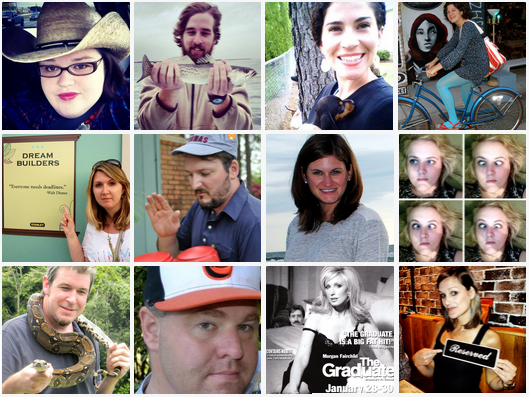Let the Words Settle
When you finish your draft, it can be tempting to dive right into revisions. But that’s a bad idea. Say it with me:
Let your manuscript rest.
Giving your manuscript time to “settle” is one of the most important things you can do for the quality of the final product. But somehow, doing nothing seems to be the most difficult part of the process.
Why the Resting Stage is Crucial
Keeping in mind the reasons the resting stage is so important will help you keep your mind off your manuscript. Here’s why you absolutely cannot overvalue the resting stage. ...
Long Day’s Journey
When my first novel was accepted by HarperCollins — the HarperCollins, formerly Harper & Row, publisher of so many authors whom I adored — I thought that all my days of rejection were over. When my book began to be sold to foreign publishers via Harper’s Foreign Rights division, earning out the HarperCollins Advance within 6 months of acceptance, i.e., earning out its Advance before the book was published, I thought I was on the road to full-time writing. When the pre-publication and publication reviews for the first novel started pouring in — all good, and some absolutely stellar — I thought that all my years of hard work and ceaseless rejection had finally earned me a somewhat easier writing life.
I couldn’t have been more wrong.
The subsequent rejections started almost immediately.
With my editor. ...
5 Thoughts that Kill Creativity
These five thoughts will destroy your creativity. If you think any of them, stop writing and speak to your doctor—I mean writing partner—straight away.
1. I’m not good enough.
The absolute number one way to destroy your creativity is to believe you’re not good enough. You don’t have the talent to make your stories come to life, and your characters are destined to spend eternity locked inside your mind.
You don’t write because you’re good at it. You write to become good at it. tweet this
The only thing we, as writers, need to worry about is improving. Ask yourself if the story you wrote today is better than the one you wrote last week, or month, or year. If so, you’re on the right track. ...
4 Reasons to Use a Pen Name
Have you considered using a pseudonym? There are a lot of different reasons a pen name might be a good idea. Sometimes it has to do with your life, and sometimes it’s best for the work itself. If you fit any of these descriptions, it’s probably a good idea.
1. Your writing is controversial and could affect your family relationships or day job.
When most people think of this situation, they think of erotica authors—which is a legitimate concern. Most of us wouldn’t want our grandmothers reading erotica we’d written. But there are plenty of other reasons you might want to keep your author side separate. Perhaps you’re writing about extreme political views. Or maybe you are a grade school teacher who writes about serial killers and don’t want your students’ parents to be uncomfortable. Whatever the reason, sometimes it’s best for your life as a whole to keep certain aspects separate.
2. Your real name is “taken.” ...
Overcoming Writing Doubts
We all have our own writing doubts. Sometimes, depending on where we are in the writing process, we might work our way through several writing doubts before we are able to finish our content.
Why do writing doubts pester us?
Fear wanting to protect us. Why? Because the blank page is unnerving. Honestly, it does hurt when our work is criticized. It is embarrassing when we make a mistake and don't notice it until we've published.
So fear tries to keep us from the risks that put us in these vulnerable positions. Fear's problem though is he doesn't recognize balance. He doesn't realize it is a good thing to take writing risks. It is okay to make mistakes—yes, even publicly. Sharing our writing helps us grow. But all of these good things are risks, so fear pesters us with writing doubts to protect us from these risks.
The thing is, you're a warrior, and you're going to write regardless...
How to Pick Writers Out of a Crowd
Writers are weird. We think weird thoughts, and we do weird things. We’re drawn to each other, and we can pick each other out of a crowd faster than we can think up a perfect metaphor. But for any non-writer types, here are a few surefire tells that you have a writer in your midst.
1. Scribbling
Writers are always scribbling on something. You don’t know, but that line about your grandma’s dog—I’m going to use that. Writers typically carry a small notebook, but you’ll also find us tapping away at our phone screens and jotting down notes on napkins and receipts. ...









